Obiang prize suspended indefinitely
The Obiang prize, named for and funded by one of Africa’s most notorious dictators, was a very poor idea from the start and our goal, bluntly, was to kill it. We didn’t quite succeed in getting an outright cancellation, but the prize, while technically alive, is in a deep coma with virtually no chance of…
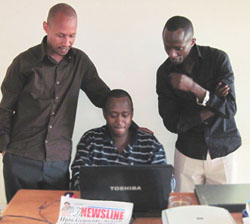
Censored in Rwanda, editors work from exile
Though it has been a dark year for Rwanda’s press, it has also been a year of resistance and turning to a new sort of reporting–from exile. Ever since Rwandan authorities began cracking down on the nation’s independent press before the presidential elections in August, the space for critical reporting has been dissipating.
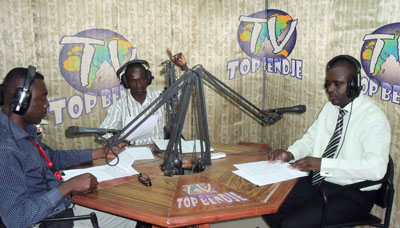
In Gabon, censorship lingers from 2009 vote
In Gabon, more than a year after the historic and contested presidential elections won by Ali Ben Bongo Ondimba, the main radio and television stations of Ondimba’s two main opponents still face administrative obstructions imposed during the polls, according to interviews CPJ conducted with journalists and officials between July and September.
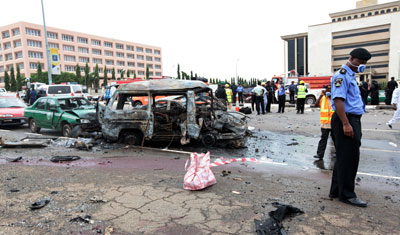
Abuja Twitterers chronicle #Nigeriaat50 bomb explosions
A few minutes before deadly explosions ripped through Nigeria’s 50th Independence Day celebration in Abuja on Saturday, Twitter user Achonu Stanley wondered about darkening skies over the festivities: “Would the day be marred by rain? It has become cloudy and dark. Sorry for the thousands of people at Eagle Square.”
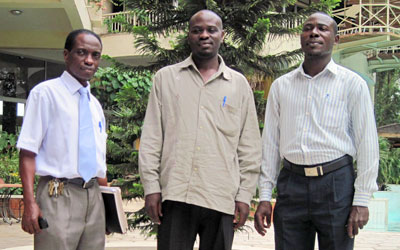
Ugandan station still closed, an ill omen for election
More than a year has passed since the government-influenced Broadcasting Council summarily closed the popular Central Broadcasting Service, or CBS. The council closed the station in September 2009 as riots were erupting in response to the government’s decision to block the traditional Buganda king from attending a youth celebration north of the capital, Kampala. Its…
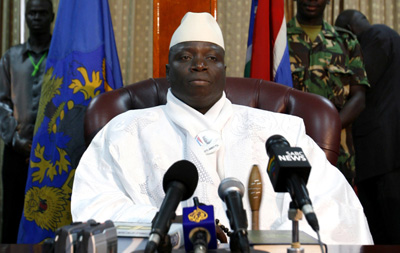
Jammeh ‘award’ coverage reflects chill in Gambian press
“President Jammeh bags 4 awards,” trumpeted a September 17 headline of the Daily Observer, a pro-government newspaper in the Gambia, a West African nation whose idyllic façade as “the smiling coast of Africa” is maintained in part by President Yahyah Jammeh’s brutal repression of the independent press.
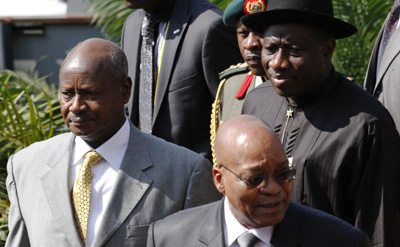
With media plan, ANC copies Nigeria’s military rulers
While South Africa’s ruling African National Congress (ANC) discusses the party’s proposal for a media appeals tribunal, delegates should take note of a landmark ruling in Nigeria this year in which a High Court judge declared a government-dominated press council unconstitutional.
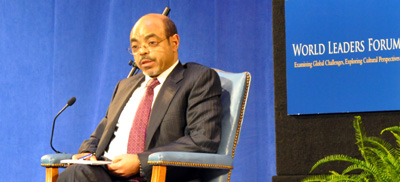
As Zenawi speaks, editors are grilled in Ethiopia
On Wednesday, just a few hours before Ethiopian Prime Minister Meles Zenawi delivered the keynote address at the World Leaders’ Forum at New York’s Columbia University, two journalists back in Addis Ababa endured nearly seven hours of police interrogation.
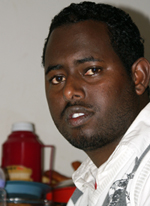
Somali journalist lives under threat, in fear in South Africa
Violence has cut through the life of 28-year-old journalist Abdulahi Ibrahim Dasar, from his high school days in Kismayo, the third-largest city in Somalia, to his life as a refugee in South Africa. The turbulence of Dasar’s life also explains his entry into journalism, a profession that has made him a target of assassination by…
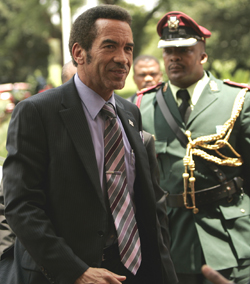
Why South Africa’s media fight matters to Botswana
For Batswana journalists, news that their South African colleagues are busy warding off a proposed statutory media tribunal from the ruling African National Congress sounds all too familiar. For more than a decade, the government of Botswana has been trying to push a media law that would effectively shift the whole media under state control.This was eventually…